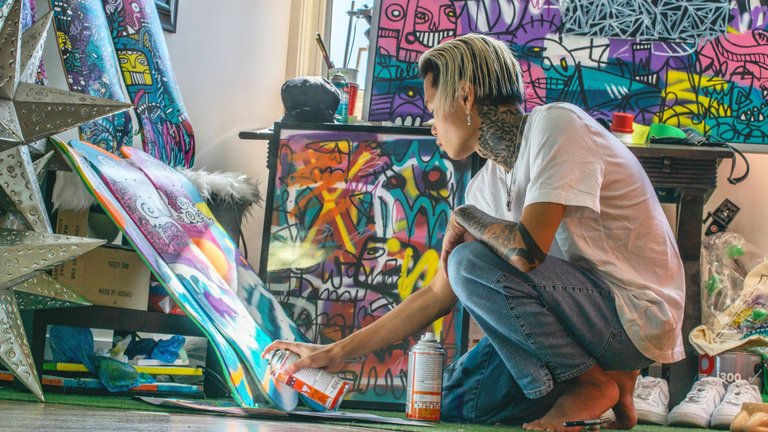
"I Want to Make Art More Accessible for Everyone, Especially for the Ones that I Have Left Behind."
Interviewing Harvey Nichol was a pleasure: though he was late by 40 minutes, he still runs on 'Filipino time'; I find his explanation poetic—at least didn't just say he was fashionability late. Harvey had an empowering mandate to him: he wanted to be a positive symbol for young artists back home in Tondo district located in Manila, the Philippines.
We talked briefly on Harvey's origins and life story; he had gone through some significant ups and downs in his life that many here in North America could not have imagined. Harvey was born in the Tondo District—the most run-down district in Manila city, where his grandmother had to leave all the time for migrant-work in other countries(e.g., Saudi Arabia), leaving his mom to take care of her new-born baby. Later on, at age 14, Harvey had significant difficulties after his father sponsored him to Canada. That's also when he started painting at home.
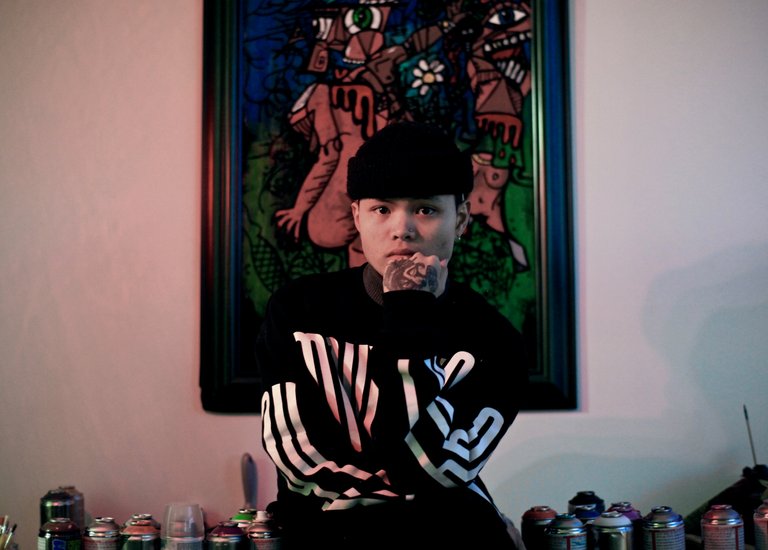
"I painted in black and white for the first few years in Canada, the melancholy feel that my paintings expressed were coherent with my feelings of depression and of being different; it was about race, ethnicity, and gender. The melting-pot that is Canada made fitting in and sticking with traditions a choice, that I had not anticipated being difficult before we moved."
As mentioned, his interests in self-expression made it difficult at home—as an Asian who's pursuing media, I understand his struggle—leading up to him running away, living in shelters, and switching foster homes. It was in this period that Harvey got more in touch with art, he had picked up dancing, learned more about visual art at Refreshed(an art program for youth in Calgary surrounding first nation reserves, article to come).
Explained by Harvey, his aspiration and passion departed from his parents' rigid imagination for what's to come after their sacrifice, the comfort of their native land, and moving oceans away. In the process, Harvey experienced emotional abuse from his family in Canada, who was pitifully insecure about Harvey's pursuit and channeled their anger through neglect. Before moving, Harvey dealt with the death of his birth-mom, and only recently, years after running away from home, Harvey expressed his sorrows through his paintings.
"I Want to Escape this Victim Mentality, that Haunted Me for Years."
Harvey channels all that he had gone through with art, on different materials and methods of expression; he creates tattoos, graphics, digital collages, and recently woodwork cut-outs.
link to Woodwork Trailer!
As an immigrant who moved to Canada at age 14, Harvey felt that it was a privilege to be here and that he did everything to fit in, I can resonate with that. Harvey responds to insecurities of being different by being unapologetic with himself, many of the times through art and fashion.
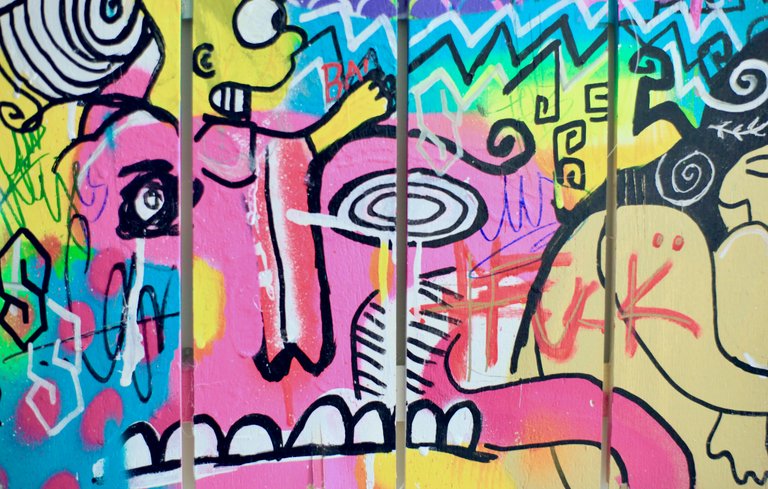
Now, Harvey sells his art at an affordable price, making it accessible to a broader audience. According to him, he wants to show youth artists in Calgary and back in Tondo a sense of self-fulfillment that empowered him personally. Harvey plans to host his second solo show on February 14th, at the Tokyo Smoke(1205 1 St SW, Calgary). But his journey started way before, and I was lucky to be of witness.
It is essential to clarify that everyone has their way of dealing with mental health issues independently; this article mentions the use of drugs and therefore is not PG-13, or so to speak. Over my interview with Harvey, he talked briefly about his relationship with drugs, that at times they were sources of inspiration, which are hard to express/apprehend creatively in day-to-day life.
Interestingly, it was also how we met—through medicinal cannabis.
Harvey and I were both frequenters of the Calgary Cannabis Society(CCS, now closed)—established two years before the legalization of recreational cannabis, was very much so a grey area of the law, operating as a safe place to administer cannabis use; only for people with medicinal prescriptions and adults of legal age, at the time. I had a medicinal license for anxiety and volunteered as a tender for the lounge area, like a bartender, but using cannabis brought in by the members. Of course, there were people without a prescription coming in since the mandate of the lounge was to offer the aforementioned safe place for individuals of legal age; Harvey was one of them.
My first impression of Harvey was that he dressed very nicely; he spoke in a soothing monotone, and there was always an edge to him, that I couldn't explain until his first curation at the lounge's art gallery: Millennial Free Zone(MFZ).
MFZ was an all-ages event(substance-free) that featured local youth artists. The show reached a broad audience for its multidisciplinary nature, as it included young visual artists, musicians, and clothing designers. It was Harvey's debut into event coordinating for art. Through it, Harvey was able to merge the downtown Calgary art-scene with the rest of the city and cut red tapes for youth cross-media artists lacking representation, especially in "high-art." It was an immersive and highly interactive experience for viewers as artists and musicians performed live while designers sold their clothing pieces.
Link to the youtube video on MFZ.
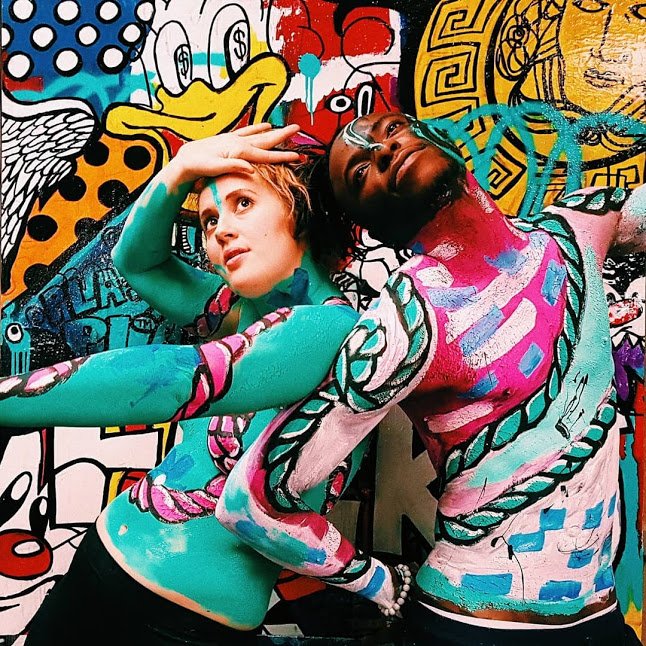
"The Millennial Free Zone was a place of 'low-art,' but we had fun with it. There was a lot of collaboration between artists that otherwise wouldn't get featured elsewhere; I wanted to make art more accessible for artists and buyers, and it worked. The event functioned like an all-ages club, but for art."
Soon after, Harvey had his first solo show, "11 years later", at Phil&Seb on 4th street. Dedicated as a memoir of the 11th anniversary of his mother's death. The show was genuinely personal and touched many hearts; the first time Harvey shared his story. Below is Harvey's piece on his mother.
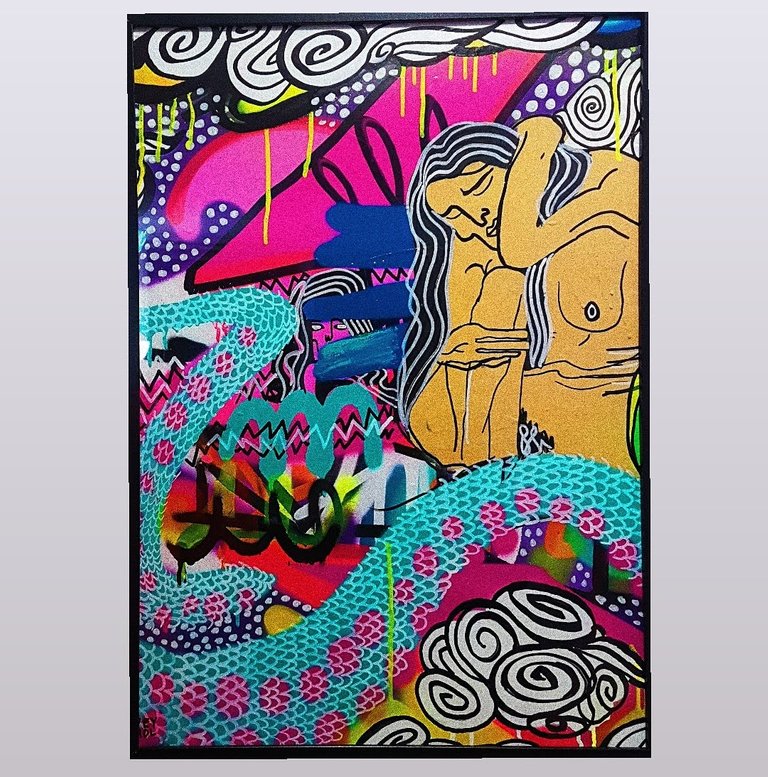
At the end of our interview, I feel that I can resonate with Harvey on a level that exceeded my expectations. Though our experiences are independent, we had similar life stories. His comprehension of escaping the victim mentality as well as his mandate to bring positive narratives to his struggles as an artist and the ones alike who are back in Tondo, Manilla, left me feeling empowered.
Harvey Nichol's Instagram